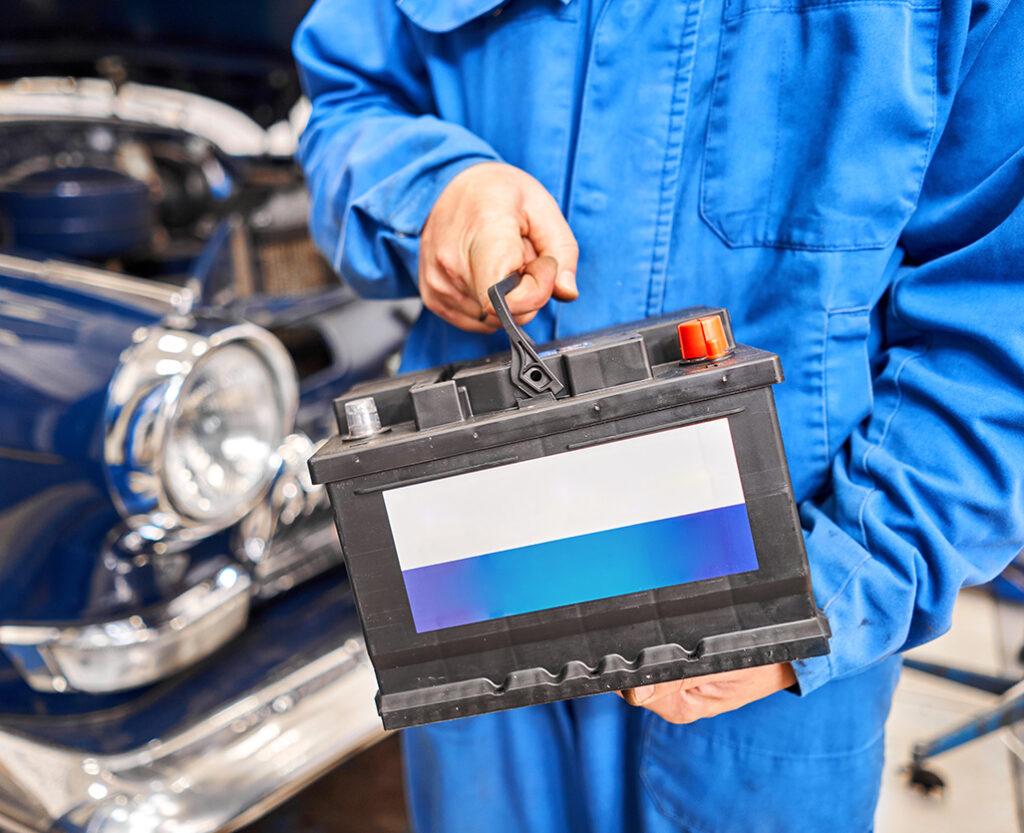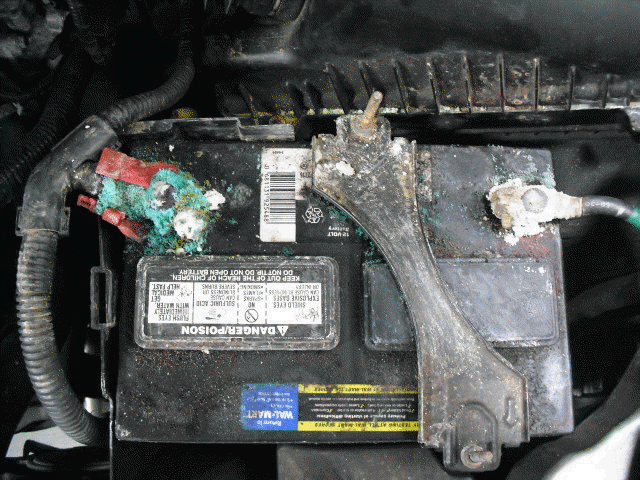
Introduction – How Does Car Battery work?
A car battery is a crucial component of your vehicle’s electrical system. It stores and supplies electrical energy needed to start the engine and power various electrical components while the engine is off. Here’s a breakdown of how it works and why it’s so important:
1. How a Car Battery Works
- Starting the Engine: When you turn the key or push the start button, the car battery sends electrical power to the starter motor, which then cranks the engine to start the vehicle.
- Powering Electrical Systems: Once the engine is running, the alternator takes over to supply power to the car’s electrical systems, including lights, air conditioning, and the radio. The battery, however, still plays a role in maintaining power during times when the alternator is not fully active, such as when the engine is idling.
- Storing Energy: The battery stores energy in the form of chemical reactions, specifically between lead plates and sulfuric acid in the electrolyte. When the car is running, the alternator recharges the battery.
2. Types of Car Batteries
- Lead-Acid (Conventional): The most common and affordable type. These batteries are durable but can suffer from shorter lifespans in extreme weather conditions (e.g., heat or cold).
- Absorbent Glass Mat (AGM): A more advanced type of lead-acid battery that’s more durable and resistant to vibrations, heat, and deep discharges. AGM batteries are often used in luxury cars and vehicles with higher electrical demands.
- Lithium-Ion: A newer, lightweight, and high-performance option, though it’s typically found in electric vehicles (EVs) or high-tech applications. They’re more expensive but have a longer lifespan and faster charging times.
3. Signs Your Car Battery Needs Replacement
- Difficulty Starting the Car: Slow cranking or the engine taking longer to start can be an indicator of a weakening battery.
- Dashboard Warning Lights: Many modern cars have a battery warning light that illuminates when there’s an issue with the battery or charging system.
- Electrical Failures: Dimming headlights, issues with power windows, or other electrical components malfunctioning can signal a battery problem.
- Swollen or Leaking Battery: Extreme temperatures or overcharging can cause the battery casing to swell or leak, which is a clear sign it needs replacing.
4. Lifespan of a Car Battery
- A typical car battery lasts around 3 to 5 years depending on usage and environmental factors. Extreme temperatures (both hot and cold) can shorten a battery’s life, so regular maintenance and timely checks are important, especially in areas with harsh climates.
5. Importance of Regular Maintenance
- Cleaning Battery Terminals: Dirt, grime, or corrosion around the battery terminals can disrupt the battery’s ability to charge properly and can lead to poor electrical performance.
- Battery Testing: Regular testing of the battery’s voltage can help determine its health and whether it needs replacing before it fails.
- Proper Charging: Avoid overcharging or undercharging the battery, as this can affect its longevity and efficiency.
6. Environmental Considerations
- Car batteries, especially lead-acid ones, should be disposed of responsibly because they contain hazardous materials. Most auto shops and battery replacement services will recycle your old battery for you. You can call us and we can collect your battery for free for recycling.
7. When to Replace Your Battery
- Age: If your battery is over 3 years old, it’s worth having it tested regularly to ensure it’s still in good condition.
- Symptoms of Failure: As mentioned above, things like slow starts, electrical issues, or warning lights are signs that the battery might need replacing soon.
8. Mobile Battery Replacement Services
In Adelaide and elsewhere, mobile car battery services such as CarBatteryExperts make it easy to get a replacement without leaving your home or work. These services often come to your location, assess the battery, and install a new one quickly, often within an hour. This is especially useful if you find yourself stranded with a dead battery or unable to get your car started.
Understanding your car battery, its role, and how to maintain it can save you time, money, and prevent inconvenient breakdowns. Regular checks and timely replacements ensure your vehicle runs smoothly and you stay safe on the road.


